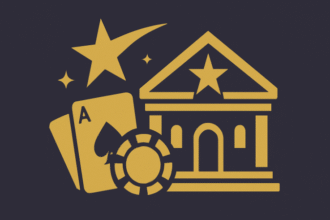Online casinos have come a long way from the early days of basic digital card games and rudimentary slot machines. Today, they operate with advanced technology that not only enhances gameplay but also guarantees fairness in ways traditional casinos never could.
Ensuring a level playing field is essential in building trust between players and operators. Whether it’s spinning a virtual roulette wheel or playing blackjack against a computer, users want to know that they’re not being cheated, and today’s platforms are finding sophisticated ways to prove just that.
Using Blockchain’s Immutable Records to Guarantee Fairness
One of the most revolutionary tools used by some of today’s online casinos is blockchain technology. Platforms like tgcasino, for instance, have adopted blockchain not just for transaction transparency but also to guarantee that outcomes are unchangeable and can be verified independently. In traditional systems, players are expected to trust that the operator isn’t tweaking the code or manipulating results. With blockchain, that trust shifts to the technology itself.
Blockchain’s immutable ledger ensures that once a game result is generated, it cannot be altered. Every outcome is recorded on-chain, which gives players access to a history of results that can’t be retroactively changed by the casino or any third party.
That means if you’re playing a game on these platforms, you can independently verify that the result was determined fairly and hasn’t been tampered with in any way. This level of transparency is a game-changer for online casinos, especially in jurisdictions where regulation may be limited or non-existent.
Furthermore, these platforms often use smart contracts to automate game mechanics. These contracts execute predetermined conditions stored on the blockchain, and because they run without human intervention, there’s no room for manipulation. Players know what to expect and can verify that the contract is being executed as written.
The Role of Random Number Generators (RNG) in Online Games
Before blockchain became a hot topic in the world of iGaming, Random Number Generators (RNGs) were the gold standard for ensuring fairness. RNGs are algorithms designed to produce a sequence of numbers that cannot be predicted. In online casinos, these numbers are used to determine outcomes such as which card appears next or where a ball lands on a roulette wheel.
A properly implemented RNG ensures that every game outcome is entirely independent and cannot be influenced by either the casino or the player. The algorithm behind the RNG is rigorously tested and certified by third-party auditing firms to ensure its integrity. Names like eCOGRA, iTech Labs, and GLI are often associated with these certifications and lend credibility to a platform’s fairness claims.
While RNGs do a solid job of keeping games unpredictable, the process is still largely unclear to the average player. Most users aren’t programmers and can’t dig into the source code to verify that the numbers are truly random. This is why players need to look for RNG certification from reputable testing agencies to ensure the games they’re playing meet industry standards for fairness.
What Does Provably Fair Really Mean?
The term “provably fair” refers to a cryptographic method that allows players to verify the fairness of each game round. It’s different from traditional RNG systems in that the player can check whether the outcome was manipulated or not, using a combination of cryptographic hashes and seed values.
Here’s how it typically works: Before a game begins, the casino server generates a hash of the outcome and shares it with the player. The player also provides a random seed, often generated from their own device. After the game ends, the full outcome and the original hash are revealed, and the player can use both the casino’s and their own seed to confirm that the result was fair and matched the initial hash. If the hash aligns with the disclosed result, the game is provably fair.
This system gives players a way to “audit” every hand of blackjack, every slot spin, and every dice roll. While it doesn’t replace RNG entirely, it offers an added measure of transparency, especially for players who value accountability in high-stakes environments.
Third-Party Audits and Licensing Standards
Aside from blockchain verification and provably fair systems, online casinos also lean on third-party audits and licensing authorities to maintain credibility. Regulators in places like Malta, the United Kingdom, and Curaçao impose strict rules on how casinos must operate, especially when it comes to game fairness.
To comply with these regulations, casinos often submit their games for routine checks where independent firms test their RNG algorithms, inspect payout ratios, and ensure that no backdoor manipulation is possible. Some sites display their audit certificates prominently on their homepage or in the footer, showing users that they’ve met certain industry standards.
Players are encouraged to check whether their preferred platforms hold licenses from reputable authorities and work with well-known testing labs. While no system is completely immune to fraud, these regulatory checks act as strong deterrents against foul play.




![branding-predictions-for-2020-[article]](https://thenewsgod.com/wp-content/uploads/2019/12/11260/branding-predictions-for-2020-article-150x150.jpg)









